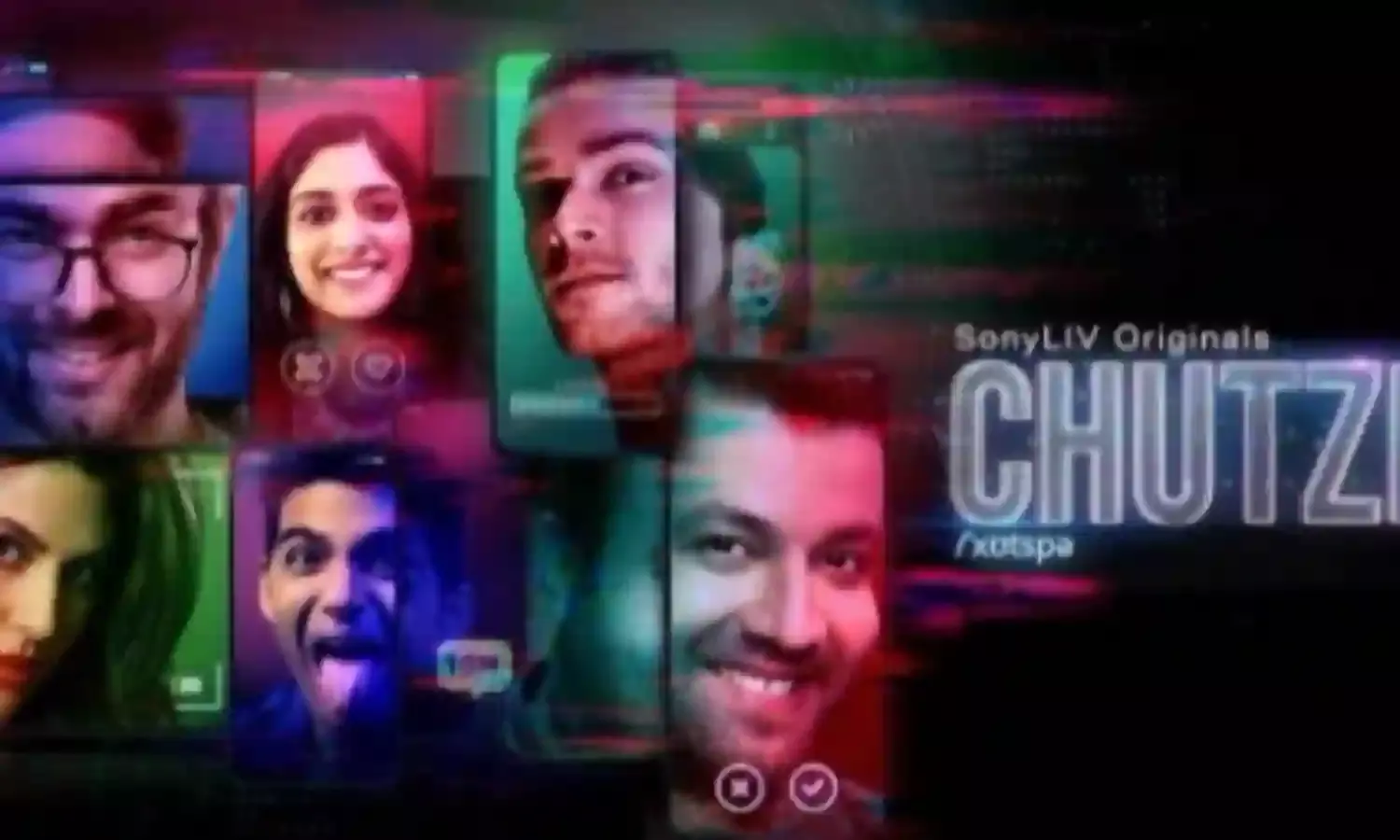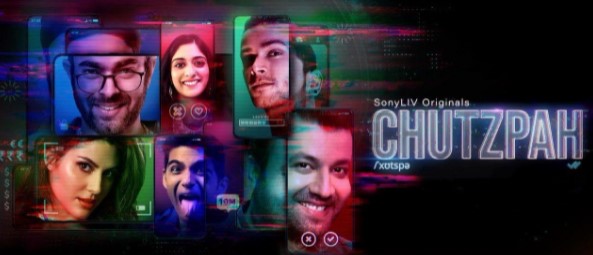Chutzpah, a Show that Can't Answer the Questions it Raised
Review of Chutzpah on Sonyliv

The recently released Chutzpah on Sonyliv is a series of seven episodes, each one close to half an hour long. It interweaves stories of viral culture and varied types of digital identities, concerning the young generation and the new technology driven lives of the youth of Urban India. It also raises fundamental philosophical questions about anonymity, privacy and existential crisis resulting after the upsurge of digital identities.
The magnum opus of existential philosophy, Jean-Paul Sartre’s Nausea invokes questions of loneliness, utter solitude, and emptiness in the physical world. In similar vein the characters in Chutzpah deal with the same set of existential problems, only stuck to the virtual world.
We are connected with millions of people through social mediums and still find it hard to meet an honest and reliable person with whom to share the problems and concerns of real life. This has conspicuously emerged as a daunting concern of the new network society. Chutzpah, at the end, offers a solution to existential concerns through Shadow, an app that resembles Alexa.
The character of Deepali Shah is a social media influencer grappling with existential dilemmas in real life. Nonetheless she gets validation through social media.
It seems she started feeling lonely because of her plump body. Nobody wanted to meet her as a companion although she had a huge fan base of admirers. Abusive, sexist and misogynist trolling by her followers during a live session with an admirer - an Indian working in Boston - made her feel unworthy about her existence.
She makes plans to meet Jugal Mehta - a businessman NRI - after sympathetic advice from her family. He does not turn up for the promised meeting. Surprisingly this blocks her up, and as a result existential questions engulf her relating to his physical appearance. Her digital presence is admirable and remains all around, still it is satisfactorily nowhere and is filled with meaninglessness.
In Indian society, which largely believes in the collective existence, people are made to isolate themselves to generate their own identities, which are fostering the individualist society, devoid of collective identities.
It is causing isolation and deafening distress. In life on social media, which has multiple shades just like the real physical existence, a person’s ‘digital self’ can have a broad social base, contrary to the acceptability of the ‘physical self’ in the same society.
Vikas Bhalla, a tech employee in an American company develops an app called Shadow to deal with the loneliness of a breakup. Problems are encountered by other characters due to the abundance of the tech world and particularly the questioning of the virtual self.
The real physical self finds a solution in Bhalla’s app Shadow, which catches the sound of your loved ones to make you feel connected with the close person to evaporate isolation.
This is a conventional technologist’s argument, made to make us believe that certain technology can offer solutions for all the range of existential questions, emerged from within.
Digitally generated consciousness has pushed them into a state of perpetual sickness. Do we have free will on the social media to exercise? Is free will manipulated by the owner of the algorithm?
Another social media influencer, Kevin, always pleads for likes and comments on his videos. That converts into money making in digital economy. The notion of ‘fame’ has overwhelmingly invaded the consciousness of virtual youth, and they seek their life meaning and validation from mere ‘likes’ and ‘followers’.
It has some huge psychological consequences. The real physical world already fails to give meaning to his life, and the networked world too gives him little hope to sustain.
Ironically, a digital age meant to connect people is alarmingly failing at its core to develop a compassionate community, and possibly facilitating a smooth path to people escape the thriving existential concerns. Sadly, quantity prevails over quality of life.
Rishi, who won some money in an online game to invest in his sexual fantasies talks to a woman who is a stripper. A shy Rishi, plunged into the darkness of solitude, discovers true meaning and sense of belongingness with a stripper, and eventually starts to love her.
The stripper herself, belonging to a conventional Muslim family, works to make money and to avoid going back to her home. In the meantime, when her brothers in Pakistan come to learn about her work, they threaten her to return or her fate will be similar to Qandeel Baloch, a model and influencer whose brother killed her in 2016.
She hides this stark reality from her family to imagine an independent life, at the end of the serious. She gets an assignment to work in a reality show. Despite having a materially decent life she encounters the same sort of existential concerns. She has uncountable friends and admirers, but no reliable friend with whom to share what she has accomplished.
Why have absurdity and loneliness acquired the status of defining themes of people’s digital identities or selves? I think it’s due to the lack of ‘true social consciousness’ on social media. It is more often an ‘individual’ that perpetuates under the guise of ‘social’. We need to convince people to discover the true meaning of ‘social’ in order to escape the loneliness and absurdity.
Anybody can become part of a social circle on social media, but individual and independent consciousness acquires the primitive space. We have freedom to reconstruct ourselves on the social media, but the mere seed of this thought in the mind - now equipped to change and modify your identity at the individual’s convenient time, unlike the physical social space - puts the individual in a self-authoritative position, promoting egoism which lacks in grain, the spirit to accommodate others.
Prateek Chawla, a sex hedonist, always flaunts his toned body and keeps altering his digital identities to get new bed-partners, mainly to escape being caught. It draws us toward the faults lieing in social media, and the concerted efforts required to develop a sustained moral code to advance just and inclusive technology.
Deepali Shah keeps using a tagline, “Mai timeline hun, I was born in 21st century, I have different colours.” Similarly, we may have numerous friends, loved ones and many sources to entertain or keep us engaged, but the upsurge of the new digital world order wretchedly fails to resolve perennial existential problems.
More so, the suspension of fundamental moral principles is disturbingly observed in digital practice. Morals are the glue to sustain humanity, virtual or physical. Ignorance of the values-based use of technology will certainly require a hefty cost in return from each one of us.

Mohammad Irshad teaches in the Department of Philosophy, Indraprastha College for Women, University of Delhi



